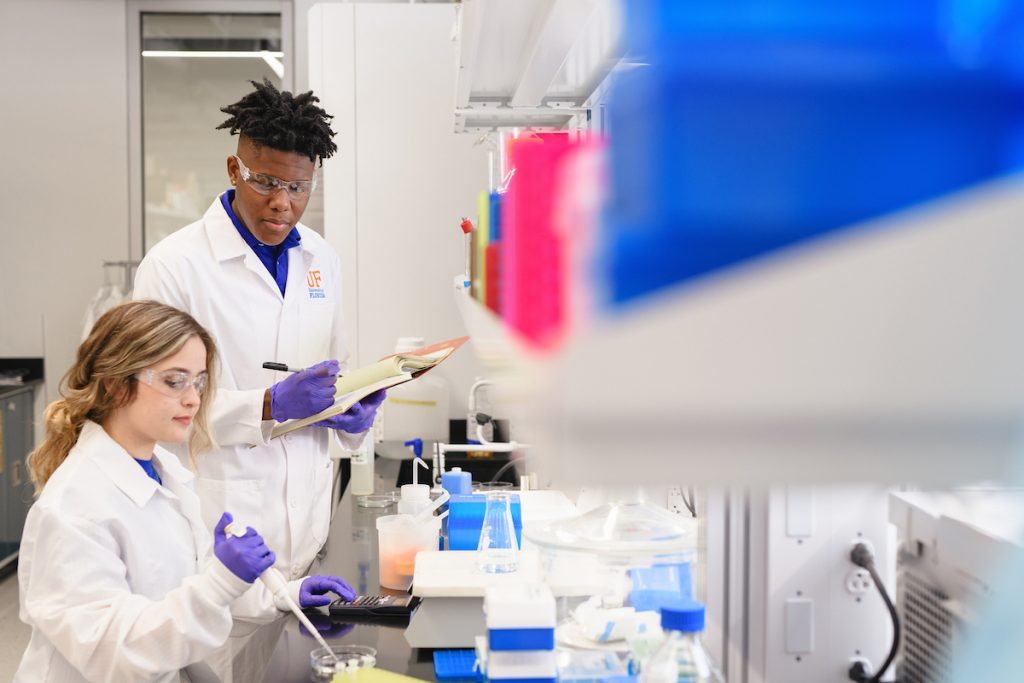- Homepage
- Service Animals
- Service Animals in the Lab
Service Animals in the Lab

Equal Access in the Lab
In the pursuit of fostering an inclusive and safe learning and research environment, the University of Florida recognizes the invaluable contributions of individuals who rely on service animals to navigate their daily lives. The integration of service animals into various settings, including laboratories, is an essential aspect of upholding the rights and accommodations provided by the Americans with Disabilities Act (ADA).
Risk Analysis
As we endeavor to provide equal access to educational and professional opportunities for all members of our community, it is imperative that we undertake a thorough risk analysis tailored to the unique challenges posed by service animals in laboratory settings. This analysis will not only address safety concerns but also prioritize the well-being of both service animal handlers and the animals themselves. By implementing this approach, we aim to create an environment that upholds the needs and rights of people with disabilities while ensuring a safe and productive atmosphere for all individuals involved.
Lab Managers must consult with the UF ADA Office before conducting a risk analysis for the presence of a service animal in the lab. Our office will work with Environmental Health & Safety’s Research Safety Services department to establish the reasonability of any service animal in the lab. UF ADA and EH&S will take into consideration:
- Needs of the handler
- Potential risks
- Regulations
- Compatibility
- Hazard identification
- Safety protocol development
- Lab staff training and education
- Emergency preparedness
- Allergen considerations
- Handler responsibility
- Periodic reviews
The safety and well-being of all individuals, including service animals, is a top priority. Every case will be individually evaluated based on the specific lab environment and its unique challenges.


